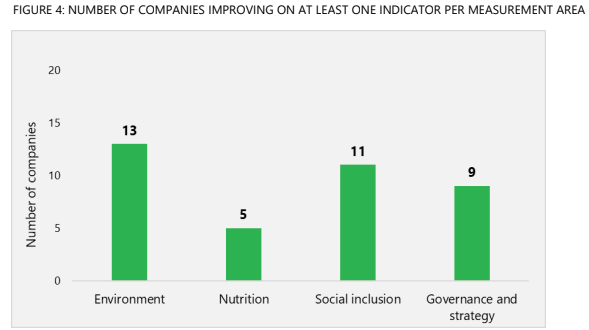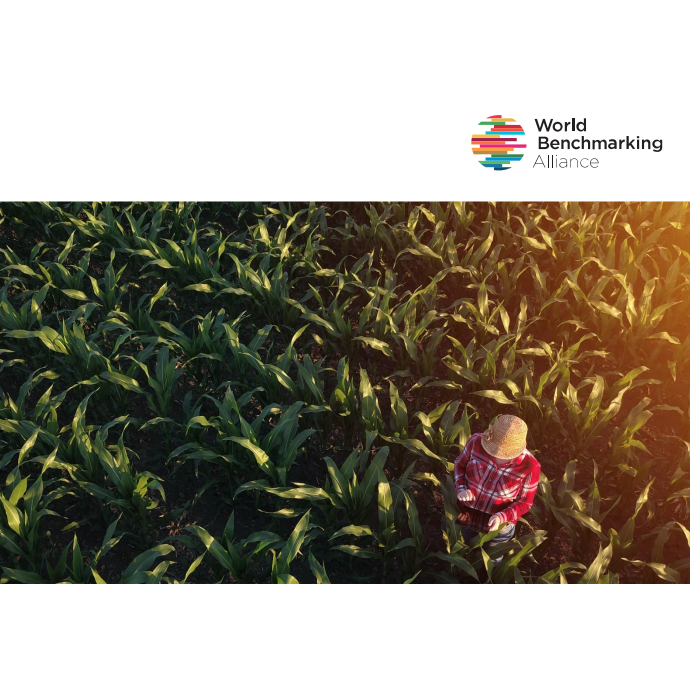Influential food and agriculture companies make progress on food systems transformation
As we were celebrating World Food Day on 16 October 2022, the World Benchmarking Alliance disclosed its latest findings, assessing 22 food and agriculture companies from G7 countries (“G7 Sustainable Supply Chain Initiative” / SSCI) [link to report]. Together, these companies represent some USD 500bn in annual revenues and over 2m employees.
During the 2021 G7 deliberations, the SSCI companies pledged to improve the environmental, social and nutritional impact of their business operations and supply chains. Twenty-one of them agreed to be assessed now across the four measurement areas of environment, nutrition, social inclusion, and governance and strategy, with one company only agreeing to be assessed on the last point.
The good news: over three-quarters of companies made progress on at least one topic deemed crucial for food systems transformation. That includes the environment, social inclusion, governance and strategy in addition to nutrition.

The most sobering part of the news was that only five of the 22 companies showed improvements in nutrition measurement topics. “Most companies have taken at least the first steps to demonstrate how their business contributes to tackling malnutrition, and four food and beverage manufacturers show leading practices related to improving the availability of more nutritious options in their portfolio”, the report highlighted. However, it continued by saying that, “a lack of disclosure is particularly evident when it comes to making healthy and nutritious foods accessible to vulnerable communities across the globe, and ensuring their marketing practices are responsible, especially involving children.”
The analysis further revealed that none of these companies has yet made progress on ensuring the accessibility and affordability of healthy foods, together with responsible marketing and workforce nutrition.
Bärbel Weiligmann, Senior Advisor Global Workforce Nutrition at the Global Alliance for Improved Nutrition (GAIN), commented: “This is low-hanging fruit for international companies. Offering nutritious food to employees on worksites is a strong lever to improve diets more widely and to improve a company’s performance on WBA’s Food and Agriculture Benchmark. Tackling nutrition and strengthening workforce nutrition could also help every food and agriculture company to increase staff loyalty, reduce absenteeism and ultimately strengthen the bottom line.“
“We are taking a holistic view on health and wellbeing of employees”, confirmed Sharon Bligh, Director Health & Wellness at The Consumer Goods Forum (CGF). CGF is GAIN’s partner in the Workforce Nutrition Alliance. “Together with our member companies we have developed a framework to work towards impact and tracking measurable progress. Workforce nutrition is an integral part of this approach.” The framework looks at Access, Culture and Impact of wellbeing at CGF member companies and how the industry can go further together to look after the millions of people that work across the network. “We strive to support our members achieving their goals, which includes improving their scores in international and national benchmarks and rankings.”
The interim assessment is, according to WBA, “shedding light on where the private sector is positioned on the 2030 Agenda for Sustainable Development and where further commitments and pledges are urgently needed.”
